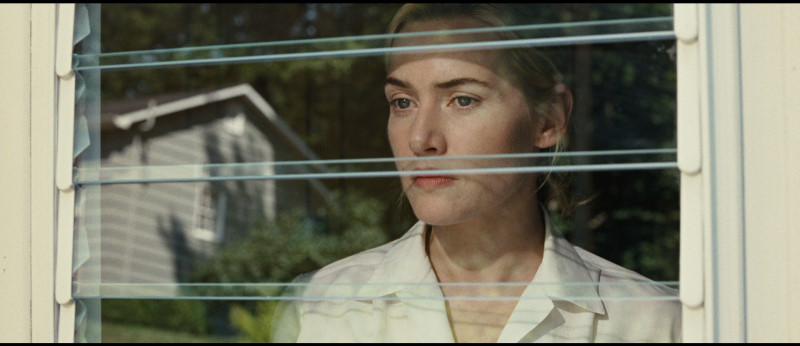Dir. Sam Mendes
Starring: Leonardo Di Caprio,
Kate Winslett, Kathy Bates, Michael Shannon
The cities are worth living in,
right? The cities are vibrant, electric, crowded with thousands of people with
thousands of stories. The cities are great.
Or if you can’t live in the
cities, live in the countryside. Proper countryside – go all Walden. Go all Into the Wild. Have the courage to live out among nature providing
for yourself.
And then, in between, we have the
suburbs. Neither one thing nor the other. Identikit houses, with identikit
families, holding identikit values. It was Anna
Karenina that said that “Happy
families are all alike…”. Maybe that is what the suburbs are all about – if
every family looks alike, then maybe they must all be happy. But the rot behind
the middle class values has been creeping in to public discourse since the
‘30s. Perhaps it found truest expression in Richard Yates’s 1961 novel Revolutionary
Road Connecticut
Frank (Leonardo Di Caprio) and
April (Kate Winslett) Wheeler are the golden couple of their town, seemingly
universally liked. Married with two children, they reside in a white-painted
house at 115 Revolutionary Road New
York Paris
John is the voice of reason –
ironically for a mad man. He is the only person who looks at 1950s middle class
conformity with modern eyes. He sees the trap that everyone has got themselves
into: “You want to play house you got to
have a job. You want to play nice house, very sweet house, you got to have a
job you don’t like.” That is only half the trap; the remainder is when
people convince themselves that this is what they want, and what they have
always wanted. Giving up their own dreams to realise what they assume are the
dreams of their parents and peers. Frank speaks of the “hopeless emptiness” of the suburbs, a phrase which really strikes
John: “’Hopeless emptiness’. Now you’ve
said it. Plenty of people are on to the emptiness, but it takes real guts to
see the hopelessness.”
April says that “It takes backbone to lead the life you want”.
Frank does not have those guts or that backbone. Instead he has “the backbone not to run away from my
responsibilities”. He is offered a promotion at work. At the same time
April discovers that she is pregnant again, the child probably conceived in a
fit of kitchen-work-top passion after telling their neighbours Milly and Shep
(Kathryn Hahn and David Harbour) of their plans to emigrate. Frank stops her
from aborting the foetus (illegal in Connecticut Paris
 |
| Trapped in the suburbs: Kate Winslett as April |
April talks of living in a “little trap”, that they are living by
rules that someone else made. “Look at
us. We’re just like everyone else. We’ve bought in to the same, ridiculous
delusion.” But this is safe territory for Frank. He wants to feel like a
man, and here he can do that, providing for his family and sleeping with the
secretarial pool. Shep is horrified by the thought of Frank being supported by
April in Paris
It is their children that have
brought them to this place. They moved out to Connecticut
At the end of the film Frank
moves back to the city. Helen tells her husband that she never really liked the
Wheelers. They were whimsical and neurotic. They didn’t fit in. They were not
like everybody else; they were not a happy family.
What have I learnt about Connecticut
It is commuter territory, suburbs
where the housewives stay home to look after the children and the men catch the
train en masse to work ten hours a day at jobs they dislike and fool around
with the secretary. People are constantly trying to get ahead, to work out what
they want next – a hobby, a bigger house, the neighbour’s wife. Acquisition is
the God here. It is like a giant version of ‘Game of Life’. Nothing about life
that is good can flourish here. Connecticut
Can we go there?
Wouldn’t you rather go to Paris
The entire movie was filmed on
location in precisely the sort of Connecticut 115
Revolutionary Road Connecticut New York Sasco
Beach in Fairfield Pinewood
Lake in Trumbull
Overall Rating: 4/5
Overall Rating: 4/5

No comments:
Post a Comment